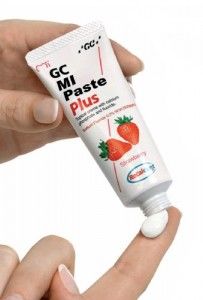
Simple, yet effective, Minimum Intervention (MI) Dentistry is the modern medical approach to the management of caries.
MI features three guiding principles:
- Identify and assess any potential caries risk factors early
- Prevent carries by minimizing or eliminating those risk factors
- Restore the tooth and protect against further damage through the
use of bioactive materials
These principles stand in direct contrast to the traditional “drill & fill” surgical method, which treats the symptoms of a disease rather than the cause.
Remineralization and Demineralization
The first step in designing a Minimum Intervention treatment program is identifying dental caries as a disease and the causes of demineralization. Dental caries requires a susceptible host and cariogenic plaque bacteria
sustained by a high-sugar diet. The bacteria ferments the sugars, producing acid, which lowers the neutral
pH of the oral environment and attacks the enamel. This leaches out calcium and phosphate ions, causing demineralization that leads to the destruction of the enamel subsurface and the start of decay, often seen as
white spots.
Demineralization can result from:
- Cosmetic tooth whitening
- Excessive acid-producing plaque bacteria due to poor oral hygiene
- Bad dietary habits such as drinking excessive sodas and sports drinks
- Medications
- Xerostomia or conditions leading to reduced salivary flow
- Physical or psychological stress

